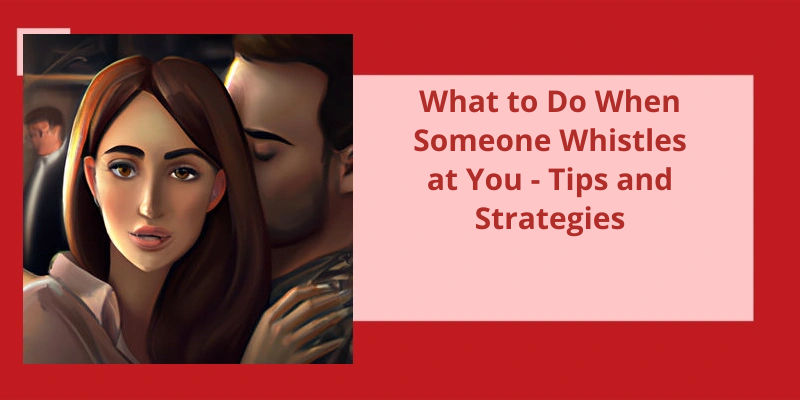As human beings, we’ve all had that moment where we’re asked a question that we simply don’t know the answer to. It can be a frustrating experience, especially if the questioner is looking for a specific answer or information. It’s natural to want to provide an answer or respond in a way that satisfies the person asking, but sometimes our minds just can’t conjure up the necessary information. This inability to directly answer a question can stem from a variety of factors such as lack of knowledge or experience, forgetfulness, or simply a mental block. Whatever the reason, it’s important to recognize when we’re unable to provide a direct answer and to be honest about it, as trying to come up with a false or inaccurate answer can only worsen the situation.
What Is It Called When Someone Doesn T Directly Answer a Question?
When someone doesn’t directly answer a question or gives a vague response, it can be frustrating for the person asking the question. This behavior is often referred to as evasiveness, a term used to describe the act of avoiding or sidestepping a direct answer. Evasiveness can occur for a variety of reasons, ranging from a desire to protect oneself or others, to dishonesty or manipulation.
This can be particularly damaging in personal or professional relationships, where trust and honesty are essential to building strong connections.
While evasiveness can be frustrating to encounter, it’s important to approach the situation with empathy and understanding. In some cases, the person may be struggling with their own insecurities or fears, making it difficult for them to be direct and honest. By approaching the situation with compassion and curiosity, rather than frustration or anger, we may be able to better understand and even resolve the underlying issues at play.
However, there are a variety of reasons why someone might avoid giving a direct answer to a question. In some cases, they may not have a clear answer or may be trying to avoid a difficult topic. In other cases, they may be intentionally being evasive or trying to manipulate the conversation for their own benefit. It’s important to be mindful of these potential motives when engaging in conversation with others.
Why Would Someone Avoid a Direct Answer to a Question?
However, this approach can also lead to a lack of transparency, as people may feel that the person who dodged the question is trying to hide something that they don’t want to reveal. This can be particularly problematic in situations where the question is important or when people feel that they’ve a right to know the answer.
Another reason why people might avoid answering a question directly is that they may not know the answer or they may not want to admit to not knowing the answer. In such cases, people may try to redirect the conversation to a different topic or offer vague responses that don’t really answer the question. This approach can also be problematic, especially if the person who asked the question is counting on the other person to have specific information.
The fear of offending someone is yet another reason why people may choose to avoid answering a question directly. In some cases, people may worry that their answer will hurt or offend someone, even if the response is honest and truthful. This can happen when dealing with sensitive or controversial topics, as people may feel that it’s safer to avoid providing a direct answer in order to avoid causing offense or harm.
Cultural factors can also play a role in why people may avoid answering a question directly. In some cultures, providing a direct answer can be seen as rude or confrontational, and people may instead prefer to use indirect language or avoid answering the question altogether. This can make it challenging for people from different cultural backgrounds to communicate effectively, as they may have different expectations or assumptions about how questions are answered.
They may feel that the question is intrusive, irrelevant, or simply none of the other persons business, and therefore feel justified in providing a vague or indirect answer, or no answer at all. While this can be frustrating for the person asking the question, it’s important to remember that everyone has the right to control what information they share with others. In some cases, it may be better to respect the other persons boundaries and avoid pushing for a direct answer.
Ways to Respectfully and Tactfully Encourage Someone to Give a Direct Answer Without Causing Offense or Discomfort
- Ask open-ended questions: Instead of asking yes/no questions, frame the question in a way that encourages a detailed response.
- Show understanding: Let the person know that you understand where they’re coming from and why they may be hesitant to give a direct answer.
- Be patient: Give the person time to gather their thoughts and respond in their own time.
- Acknowledge their concerns: If they express concerns or fears, acknowledge them and work with them to find a solution that addresses those concerns.
- Offer reassurance: Make it clear that you value their input and that their answer will be received with respect.
- Use active listening: Repeat what they say and clarify any misunderstandings. This will help build trust and encourage a more direct response.
- Frame the question positively: Instead of focusing on what they haven’t answered, focus on what they’ve and use that as a springboard for a more direct response.
- Avoid accusatory language: Don’t make it seem like they’re at fault for not giving a direct answer. This will only put them on the defensive and make them less likely to respond directly.
- Offer alternatives: If they’re still hesitant to give a direct answer, offer alternative ways they can provide input or express their concerns.
Source: Evasion (ethics) – Wikipedia
It’s important to be upfront and honest in most situations. However, sometimes people may try to avoid giving a direct answer or being completely truthful. In such cases, there’s a specific word to describe this behavior. This term originates from French and is typically used to describe people who’re intentionally shifty or vague. Discover more about this term and it’s usage in the following sections.
What Is a Word for Not Giving Straight Answers?
Evasiveness is commonly associated with politicians and public figures who tend to avoid answering direct questions in interviews or press conferences. This can often frustrate the interviewers and lead to negative public perception. However, evasiveness isn’t limited to public figures, as individuals in personal relationships or professional settings can also display the same behavior.
Being evasive can have different motivations. It can be driven by fear or anxiety, as answering truthfully might lead to negative consequences. Evasiveness can also occur when one is trying to manipulate a situation or control the narrative. By not answering directly, the evasive person retains power and control, leaving the other party feeling confused or unsure.
There are several tactics that evasive individuals use to avoid giving straight answers. One common tactic is answering a question with another question, changing the subject, or repeating a generic answer multiple times. Another tactic is overloading the other person with irrelevant information to deflect from the original question.
Dealing with an evasive person can be challenging, but not impossible. It’s essential to remain calm and composed and not get drawn into their tactics. Asking direct and specific questions and staying focused on the topic can help cut through their evasiveness. Active listening and observing nonverbal cues can also reveal valuable information and help identify patterns of evasion.
It can lead to a breakdown in communication, relationship issues, or even legal consequences if the evasion involves illegal activities. Therefore, being honest and straightforward is crucial for building trust and maintaining healthy relationships, both personal and professional.
In What Situations Is Giving a Direct Answer Not Always the Best Course of Action?
- When the answer could harm someone’s well-being or safety
- When the answer could cause unnecessary conflict or tension
- When the answer could lead to misunderstanding or misinterpretation
- When the answer could negatively impact a relationship or rapport
- When the answer could violate ethical or moral principles
- When the answer could reveal confidential or sensitive information
- When the answer could limit creativity or potential solutions
When dealing with people who don’t give straight answers, it’s important to consider their underlying motivations. Resentment could be a factor, but there could be many other reasons as well. In any case, the best approach is to communicate openly and honestly. Only through meaningful dialogue can we hope to build trust and understanding with others. With that in mind, here are some strategies for handling conversations with people who’re elusive or evasive.
What Does It Mean When Someone Doesn T Give You a Straight Answer?
Another possibility is that they simply don’t know the answer themselves. Maybe theyre unsure of what they want, or they need more time to think about the situation before giving a definitive answer. It could also be that they don’t want to hurt your feelings or disappoint you, so theyre trying to find a way to soften the blow. In any case, it’s important to be patient and understanding when someone is struggling to give you a straight answer.
Sometimes, people avoid giving straight answers because they fear confrontation or conflict. They might be worried that youll react negatively to the answer, or that it will cause tension between the two of you. This is another situation where it’s important to remain calm and respectful. Avoid getting defensive or lashing out at the person for not giving you the answer you want. Instead, try to empathize with their fear and provide a safe space for them to express themselves.
It’s also possible that the person is being intentionally vague or evasive in order to keep their options open. Maybe they’ve something else in mind that theyre not ready to reveal yet, or they want to explore other possibilities before committing to a decision. In this case, it’s important to communicate your own needs and expectations clearly. Let them know what you want and what youre willing to compromise on, but don’t pressure them to make a decision before theyre ready.
In some cases, the person might not be giving you a straight answer because they don’t respect you or value your time. This can be a sign of a deeper issue in the relationship, and it’s important to address it head-on. Talk to the person about how their behavior is making you feel, and ask them to be more honest and direct in the future. If they continue to be evasive or disrespectful, it might be time to reevaluate the relationship and consider whether it’s worth continuing.
Ultimately, when someone doesn’t give you a straight answer, it’s important to stay calm and respectful. Try to understand where theyre coming from and communicate your own needs clearly. Dont pressure them into making a decision before theyre ready, but also don’t tolerate behavior that’s disrespectful or unproductive. By staying open and honest in your communication, you can build stronger relationships based on trust and respect.
How to Deal With Someone Who Consistently Avoids Giving a Straight Answer
- Be direct with the person and express your frustration with their avoidance.
- Try to understand why they may be avoiding the question. Are they uncomfortable with the topic? Do they not have enough information to give a clear answer?
- Suggest taking a break from the conversation and revisiting it at a later time when they may be more willing to give a straight answer.
- Provide examples of how avoiding the question is hindering progress and creating problems.
- Consider seeking the help of a mediator or professional counselor if the avoidance is causing significant issues in personal or professional relationships.
Conclusion
Nevertheless, it’s important to understand that not being able to provide a straightforward answer can create confusion and mistrust. It’s crucial to assess the situation and the motives behind the inability to respond clearly and work towards finding a solution. Instead of feeling overwhelmed by the pressure of giving an answer, one can choose to be honest and seek guidance or further information. By doing so, one can cultivate a culture of transparency and accountability, leading to better communication and decision-making. Ultimately, the ability to answer a direct question is a valuable skill that can enhance personal and professional relationships and contribute to a more harmonious and productive society.






